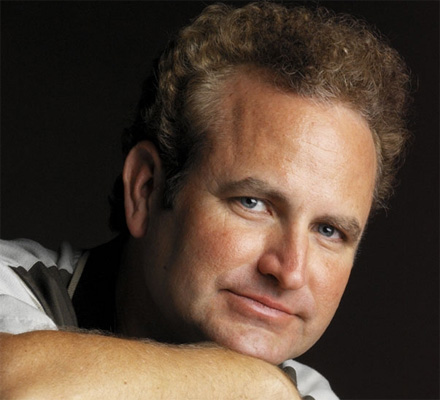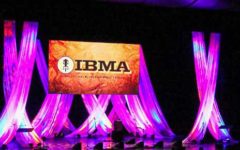
 I wish I could sell you something that would make you a better songwriter, but unfortunately, there’s no tablature for songwriters, no string gauges to change if the chorus isn’t working, no pearl inlay that will make you look deep into your soul.
I wish I could sell you something that would make you a better songwriter, but unfortunately, there’s no tablature for songwriters, no string gauges to change if the chorus isn’t working, no pearl inlay that will make you look deep into your soul.
I did once witness two songwriters argue over the merits of a Pilot G-2 0.38 pen vs. a Pilot G-2 0.5. And I can waste a lot of time discussing legal pads. One of my favorite procrastination strategies is to wander the aisles at Staples looking for the one legal pad that contains the next John Deere Tractor.
But all songwriters have is the most intimidating thing imaginable—a blank sheet of paper.
I think that’s why people go to songwriter workshops. Given the choice of driving 600 miles and paying upwards of $1,000 to spend a few days talking about songwriting rather than staring at a blank page until a song appears, I’d choose the first option too.
I like to talk about songwriting as much as the next person. Again, talking about songwriting is a lot easier than staring out the window for an hour until you finally hear a line in your head that makes you say, “that doesn’t suck.” (I’m just lucky I live with someone who understands that when I’m staring out the window, I’m working.)
And I’m not saying that talking about songwriting is a waste of time or that songwriting is something you can’t learn. It takes a lot of work to write a song and the more you do it and the more you study the masters (like Carter Stanley, Pete Goble, and Jesse Winchester, just to name three) the better you will be. And I enjoy the company of songwriters. On the whole, songwriters are a convivial bunch, given to good humor, self-deprecation, and—with that much rejection—usually given to taking the long view.
But there are things I’ve heard people say at songwriting workshops where I thought, “Well maybe, but…” Not exactly throwing down the gauntlet, I know, but then I’m not very quick on the draw—except to mix a metaphor.
I call these myths, but that might be too strong. They’re more inexact suggestions, at least to me. But who wants to read an article called “8 Inexact Suggestions About Bluegrass Songwriting”?
Myth #8: Write about what you know.
I hear this a lot and I always think, if I wrote only about what I know there’d be a lot more songs about candy bars and the Munsters. Write about what you don’t know. That’s why we have imaginations. Okay, yes, the point is that songs should be honest. I agree. But my life is pretty boring. I’d rather rob a train—in a song. And if I hear one more heartfelt song about how someone moved to Nashville and nobody understands him, I’m going to do something really interesting.
Myth #7: Uptempo bluegrass songs are easy.
The uptempo bluegrass song is the hardest song to write because it has to sound fresh and it has to sound like it was written 60 years ago—not an easy task.
The old joke goes: one guy says, “I just wrote a bluegrass song,” and the other says, “What’s it to?” It’s hard not to hear those great old tunes in your head when you start writing. And stealing is part of the creative process. But nothing worthwhile is easy, and a good bluegrass song is worthwhile. Give it some time. Come up with something fresh, but not just for freshness’ sake. And don’t pull chord changes out of a hat. If you think uptempo bluegrass is easy, you’re not respecting it, which brings us to:
Myth #6: Words aren’t important.
I can almost agree with this one because so much of bluegrass is about tone and timing and picking. It’s tempting to scribble down a few lines and then get some killer singer to make them sound great. But words are important. The right combination of words can move people to tears and laughter—hopefully not in the same line. It’s worth the effort to get it right.
Myth #5: A thesaurus and rhyming dictionary are your friends.
I imagine a lot of people will disagree with me about this and, yes, I have occasionally used them, but it’s kind of like you’re on a date and instead of engaging your partner in conversation, you pull out a book and start reading. How would you feel? I imagine a song feels the same way. It’s saying, hey, it’s about me, not what’s in that book!
I know that may sound odd. A reference book is just a tool, a way to rhyme words, and it can help with issues like finding just the right word. But, the answers are in the song. A thesaurus is for leisure time.
Myth #4: I can’t carry a tune.
I think the point being made when I first heard this was that if you can’t sing, then how can you write a killer song? If you really can’t carry a tune, then imagine someone who can. As you’re writing, think about what Russell Moore or Claire Lynch could do with it. Maybe you will come up with a song you can’t sing, but they can. Or write a song you can sing. But don’t use your voice as an excuse not to write the song that’s in your head. That’s the one thing songwriters have over those who sing well (and, yes, I know there are a few who do both). As long as I don’t open my mouth, I sound like Russell Moore.
Myth #3: Always carry a recorder.
This is another one I suspect people will disagree with me on. The theory is that if you have a quick way of recording ideas and melodies then you won’t forget them. And we’ve all forgotten melodies and phrases and later kicked ourselves for it. I have a recorder app that I use just for that.
I’m not against getting things down quickly. But one technique of songwriting is to live with a line for a while. Repeat it over and over. Get to know it. See where that line wants to go. Sometimes when we dump stuff onto a recorder we’re really just putting the most important work off till later. So, I’ll just repeat something until I can’t forget it. But, of course, I have. So, always carry a recorder.
Myth #2: There’s no money in bluegrass.
I’m not saying there’s a lot of money in bluegrass. But that doesn’t mean there’s none. If you’ve written a song that an artist has recorded, then there’s money on the table somewhere for you to claim. You just have to learn the (legal) ways of claiming it.
Join a Performing Rights Organization like ASCAP or BMI as both a songwriter and publisher. Keep your publishing. Have a mechanical and digital license contract at the ready. If a band creates 1,000 copies of their CD with your song on it then you just made $91, theoretically. Sometimes you have to go get it.
If you put out your own recordings, then you’re a record label and an artist as well as a songwriter, so join SoundExchange. One easy way I’ve found to collect digital royalties from your own recordings is through CDbaby.
Once you have collected your money, blow it on a nice dinner.
Myth #1: Something comes first.
This is always the question that comes up: which comes first, the words or the melody? I say whiskey comes first because it’s before breakfast. But I think what people are really asking is, “How do you start a song?”
It’s a chicken-and-egg conundrum (I looked that up in my thesaurus) because each song is different and each songwriter is different. Sometimes it’s just a couple of words or a few notes that entice you into working on a song.
Words imply melody, so one thing I sometimes do is take random words that I see, say, on the side of the road while I’m driving—and sing them. Another tip is that you don’t want to ride with me.
One more thing…
Myth Z: Everything has been written.
I almost hate putting Myth Z into words because it’s every writer’s nightmare. I heard it expressed at a workshop one time and I had to go stare at a placid lake (literally, it was Lake Placid) for an hour afterward.
It’s disturbing on two levels: everything has already been written by other writers, and I have written everything I’m ever going to write. The latter is something I feel after every song or project. I’m superstitious enough not to outright deny this myth. After all, who knows? But if you’re going to write, you need to face your fears. So, I guess I will say it: everything has not been written—yet.
I’d like to hear your thoughts on all this. Songwriters may not have tablature, but we do have imaginations, and the good thing is there’s no price tag on that. You have to find your own voice and create your own myths. Just start.







